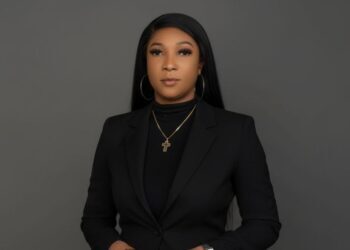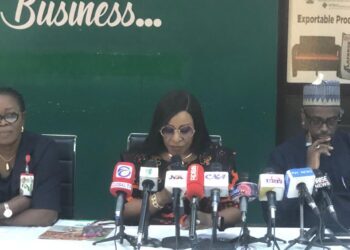The Deputy Comptroller-General (DCG) of Nigeria Customs Service, Mohammed Abba-Kura said the organisation is leveraging on data analytics for secure and efficient trade facilitation in its operations and to ensure better global service delivery.
Abba-Kura who is in-charge of enforcement, investigations and inspections at the customs headquarters in Abuja, made this known to newsmen on Thursday at the ongoing Comptroller-General of Customs (CGC’s) Conference in Lagos.
He stated that data analytics and the new technologies were essential to the modernisation and efficient operations of the service, as it provides real-time information on planning, tracking, better revenue prediction and generation.
He stressed the relevance of the customs’ conference, which he said is an avenue for stakeholders to carryout an assessment of their performance and made necessary corrections that will lead to enhance service delivery.
The DCG also said that the customs service will continue to synergise with other organisations both within and outside the country to further boost its operations and forge partnerships.
He described the Customs Comptroller-General, Bashir Adewale Adeniyi is a good listener, straight forward, innovative, team player and very passionate about the success of the service.
Abba-Kura therefore assured Nigerians and President Bola Tinubu that the new leadership at the customs service will not disappoint them in the discharge of their duties.
The CG Conference was resuscitate by the new Customs boss after eleven years suspensions by its previous management.
In that regard, Abba-Kura expressed gratitude to the Vice President Kashim Shettima, Lagos State Governor, Babajide Sanwo-Olu, captain of industries and traditional rulers whose presence, he said boosted the morale of officers and men of the service.
Alutanews reports that, the Customs CG, while welcoming participants at the event, said the significance of technology in global customs operations cannot be overemphasised and hence the Nigeria Customs adaptation to global requisitions.
Adeniyi expressed optimism that the Theme of this year’s conference would provide guiding standards and principles in helping the Nigerian government open new frontiers in customs operations.
The CG also noted that, “it is requisite that the Customs Service streamline and integrate its services in its bid for global service delivery and meeting up international standards.”
In his goodwill message, the Director-General of the World Customs Organisation (WCO), Dr. Kunio Mikuriya, commended the Nigerian Customs for working tirelessly to facilitate the adaptation of data analytics and e-customs operations.











